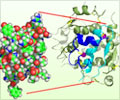- Maturity-onset diabetes of the young (MODY), a new form of diabetes is on the rise in India
- Thirteen of the 14 forms of MODY were identified among those clinically diagnosed with MODY
- A novel gene, NKX6-1, which is associated with MODY has been identified
Type 1 and type 2 diabetes are the usual forms of diabetes. Type 2 diabetes which normally affects adults, comprises of 90 to 95% of all forms of diabetes. Patients with type 2 diabetes do not require insulin except in the more advanced stages. In type 1 diabetes, which usually affects children, there is insulin deficiency, and hence the patients require lifelong insulin injections, several times a day. Today, with more research into genetics, scientists have identified many other forms of diabetes.
Monogenic Diabetes among Indians
Monogenetic diabetes is a genetic form of diabetes that is caused by a single gene defect. The most common form of monogenetic diabetes is “Maturity Onset Diabetes of the Young (MODY), which affects young adults and children. Patients with MODY are lean because of their age, and they are wrongly treated for type 1 diabetes and advised to have life-long insulin injections.MODY can be diagnosed only by genetic testing. There are 14 different forms of MODY, each with its own unique clinical characteristics. There have been a few studies on different forms of MODY in India, but the current study is the largest study of all forms of MODY done in India.
The study was based on genomic analysis of 289 individuals from Chennai, India. From this sample, 152 patients were clinically diagnosed with MODY and 137 were normal glucose tolerance subjects (NGT). None of the NGT patients showed any genetic variants linked to MODY.
Among the 152 patients clinically diagnosed with MODY, MODY3 was the commonest form. The second commonest MODY detected in India was MODY12 (ABCC8 MODY). Patients with the ABCC8 variants have important treatment implications and the condition can be best managed with the use of sulfonylureas.
Six variants of MODY were identified, including three PDX1 variants P33T, E224K, P242L, HNF4A V169I, BLK A71T and NEUROD1 H241Q, previously reported to be linked to MODY.
Thirteen of the 14 forms of MODY were detected among the study population. The research team also discovered a novel gene, NKX6-1 gene which was found to be associated with MODY. Functional assessment of the gene NKX6-1 showed that they were functionally impaired, confirming that they were the cause of MODY. The team also found variants in WFS1, RFX6 and 7 other genes associated with monogenic forms of diabetes (AKT2, EIF2AK3, GLIS3, HADH, MNX1, NKX2–2, and PTF1A) and they may be linked to the development of MODY.
Dr. V. Mohan, Director, MDRF said, “The significance of diagnosing monogenic forms of diabetes like MODY is that unless a correct diagnosis is made, patients can be wrongly diagnosed to have type 1 diabetes and advised to have unnecessary life-long insulin injections. Once the diagnosis of MODY is confirmed, in most forms of MODY, insulin can be completely stopped and these patients can be treated with a very inexpensive sulphonylurea tablet which has been used for decades, for treating diabetes. This is a dramatic change as far as the treatment and the life of these patients and their families are concerned.”
Dr. Radha Venkatesan, Head of Genomics at MDRF adds, “This is the first time in the world, the NKX6-1 gene mutation has been described as a novel form of MODY. Further studies have to be done to see whether this MODY form is unique to Indians or it is present in other ethnic groups as well.”
About MODY
MODY is an early-onset form of non-insulin dependent diabetes. It is caused by a mutation in a single gene. Some of the most common types of MODY are HNF1-alpha, HNF4-alpha, HNF1-beta and glucokinase. Identification of MODY becomes a challenge for physicians and the condition remains largely underdiagnosed. However, early diagnosis has important implications for the individual. Studies on these care types of diabetes can allow appropriate care and advice to their afflicted person and their family.Facts about MODY
- MODY is very rare, compared with type 1 and type 2 diabetes
- It is usually diagnosed before the age of 25
- If a parent has MODY gene, the risk of child to inherit MODY increases by 50%
- In the US, monogenic forms of diabetes account for about 1 to 4% of all cases of diabetes
- MODY can be treated with oral diabetes medicines and does not require insulin injections
Reference:
- Viswanathan Mohan, Email author, Venkatesan Radha et al. “Comprehensive genomic analysis identifies pathogenic variants in maturity-onset diabetes of the young (MODY) patients in South India,” BMC Medical Genetics, (2018). DOI: https://doi.org/10.1186/s12881-018-0528-6
- Maturity onset diabetes of the young (MODY) - (https://www.diabetes.org.uk/diabetes-the-basics/other-types-of-diabetes/mody)
Source-Medindia
















